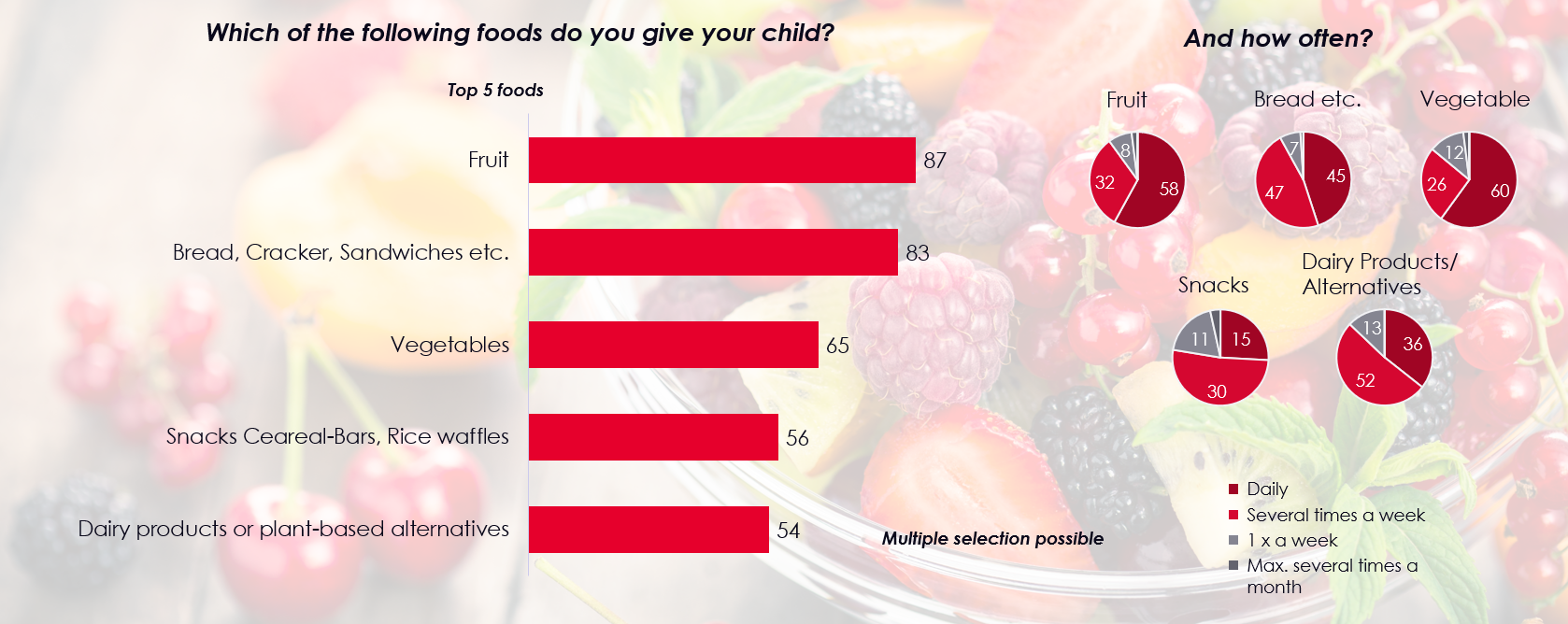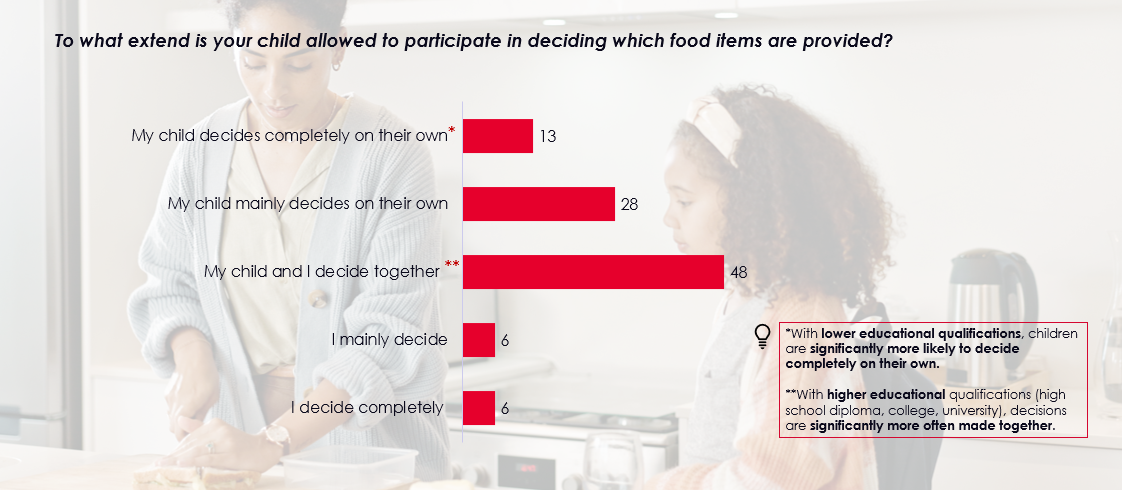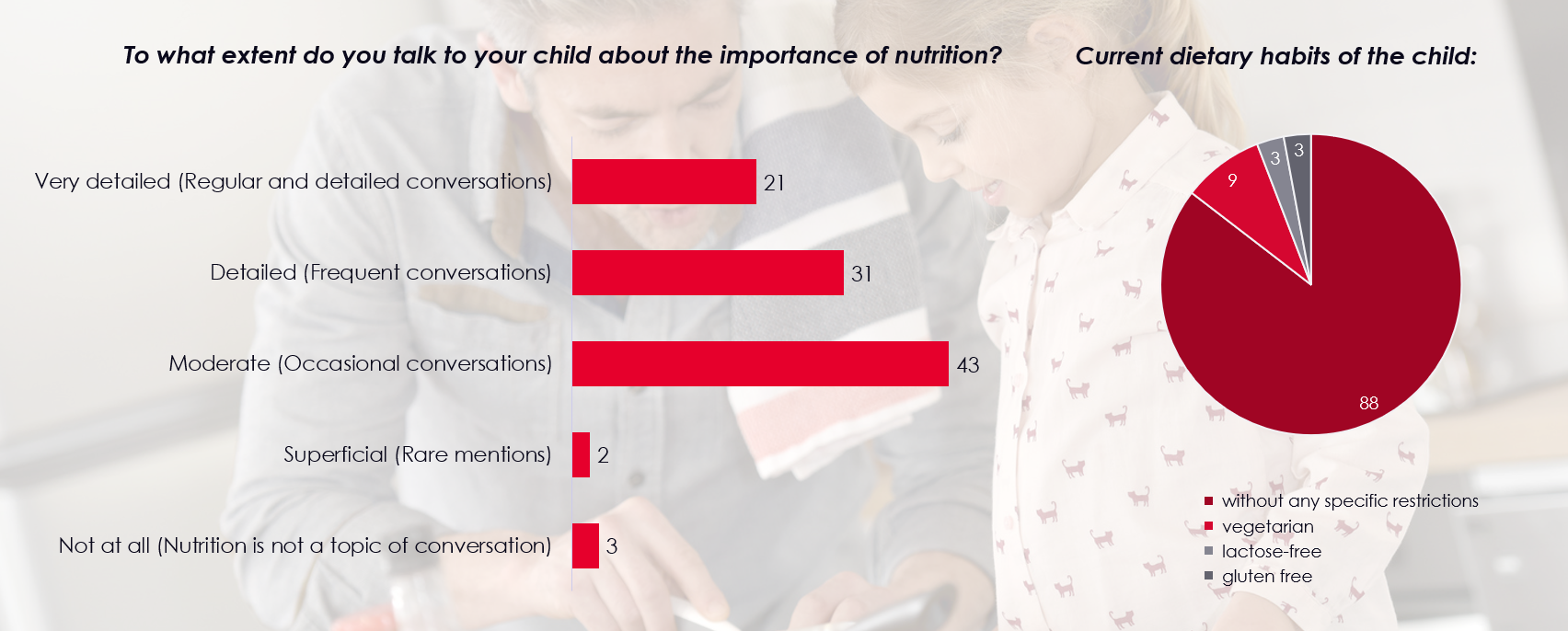The start of school after the holidays is an exciting phase for many families, in which the selection of suitable food for their children plays an important role. In the “Back to School” study, MWResearch investigated which factors influence parental decisions when choosing snacks and meals for their schoolchildren.
The study is based on a Germany-wide online survey of N=103 parents whose children aged 4 to 15 attend a preschool or class, primary school or secondary school. The data was collected in the period from 27 August to 3 September 2024. All the parents surveyed said they give their children snacks or meals for school at least once a week. The aim of the study was to understand the preferences of parents in the composition of lunch boxes and to find out to what extent the children have a say in this.
The results clearly show that fruit and bread are the most common components of lunch boxes, followed by vegetables. Snacks as well as dairy products or plant-based alternatives also play a role but are packed less frequently.


